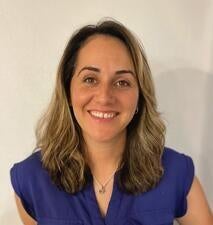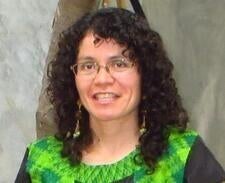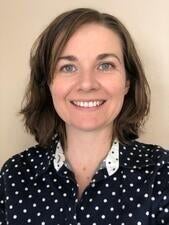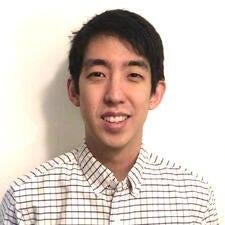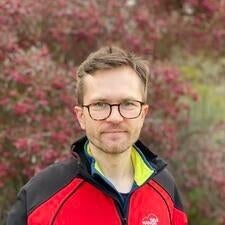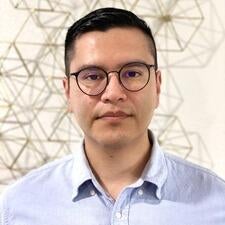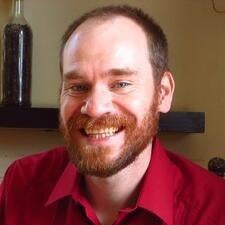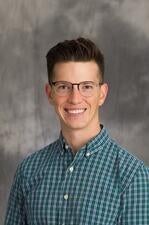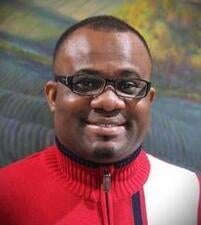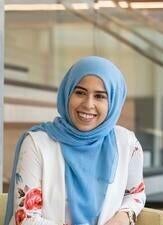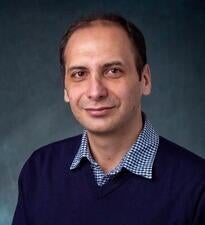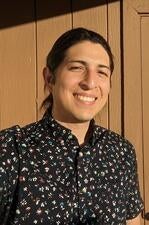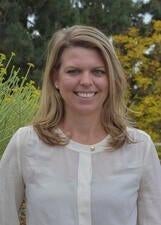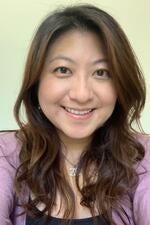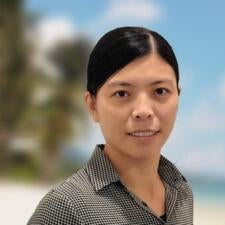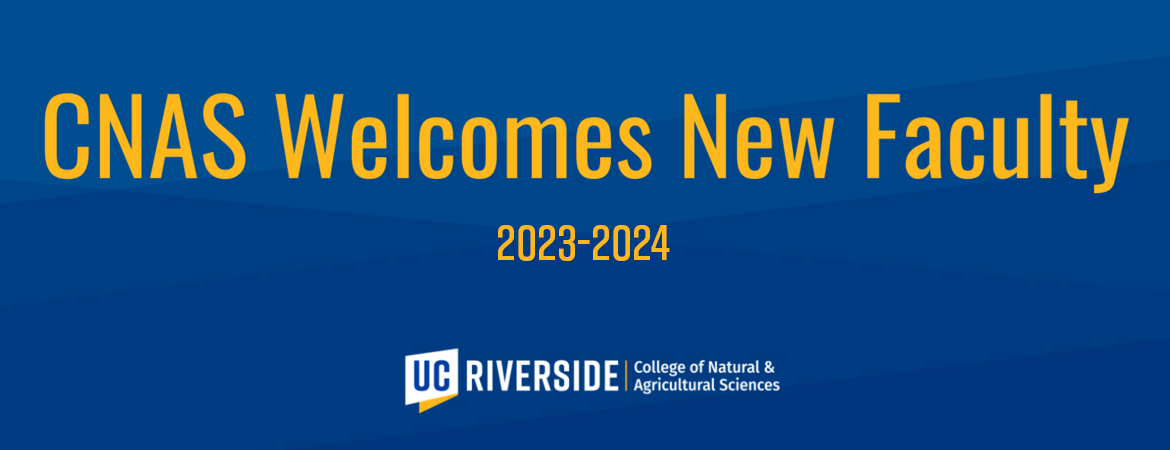
This fall, the College of Natural & Agricultural Sciences at UC Riverside welcomes fifteen new faculty members to CNAS. This new cohort of faculty brings an infusion of energy, experiences, and expertise in the fields of biochemistry, biology, ecology, entomology, mathematics, microbiology and plant pathology, physics and astronomy, and statistics. We celebrate each new faculty member and look forward to the impact they will make at UC Riverside. Join us in welcoming the following new faculty members to UC Riverside’s College of Natural & Agricultural Sciences.
Selene Bobadilla, an assistant professor of teaching in the Department of Biochemistry and Molecular Biology, earned her doctorate in biochemistry and molecular biology at UCR. She has taught molecular biology lecture and lab for five years at Chapman University and was involved in student mentoring. Her research interests include effective course design that promotes active learning, student networking, community building, inclusivity, and a sense of belonging.
Elisa Cabrera-Guzmán, an assistant professor of teaching in the Department of Evolution, Ecology and Organismal Biology, received her doctorate at the School of Biological Sciences at the University of Sydney, Australia. She has studied the effect of invasive species on native animal species, biological interactions such as competition, predation, and parasitism, ecology of freshwater environments, and effects of habitat fragmentation on communities and populations in the rainforest. Cabrera-Guzmán has primarily worked with amphibians and reptiles, but she has studied invertebrates and other groups of vertebrates as well. Her research has integrated observational and experimental work across a variety of environments in Mexico, Australia, Spain, and the U.S.
Bodil Cass, an assistant professor in the Department of Entomology, received her doctorate in entomology and insect science from the University of Arizona. Her focus is on integrated pest management of subtropical fruits. She leads research and extension efforts to improve the sustainability of citrus, avocado, and other specialty fruit crop production in California through better management of arthropod pests and vectors of plant pathogens. Her research approach employs a mix of ecoinformatics, and traditional field ecology and laboratory experiments, working directly with growers and pest-control advisors.
Andrew Joe, an assistant professor in the Department of Physics and Astronomy, received his doctorate in physics from Harvard University. Joe's work focuses on using unique optical and optoelectronic techniques to study novel electronic and excitonic states in 2D materials. At UCR, he plans to use these techniques to study the underlying physics behind new types of 2D material heterostructures and develop the next generation of optoelectronic quantum devices.
Adam Jozwiak, an assistant professor in the Department of Botany and Plant Sciences, received his doctorate in plant biochemistry from the Institute of Biochemistry and Biophysics at the Polish Academy of Sciences in Poland. His work focuses on studying the complex chemistry of plants and their metabolites, trying to understand the multifunctional enzymes that modify the structure of these molecules such as through hydroxylations, oxidations, glycosylations, and acylations. Through his research, he aims to unlock the potential of these natural products for biotechnological and agricultural applications.
Alfonso Landeros, an assistant professor in the Department of Statistics, earned his doctorate in biomathematics at UCLA. Drawing inspiration from mathematical optimization, computing, and applied mathematics in general, his research seeks to expand the reach of statistical methods to the scale of modern data sets. Landeros is broadly interested in scientific applications that include cancer, immunology, and genomics.
Daniel Moen, an assistant professor with the Department of Evolution, Ecology, and Organismal Biology, received his doctorate in ecology and evolution from Stony Brook University. Prior to UCR, Moen was an associate professor at Oklahoma State University. Moen’s research focuses on the evolution of morphological diversity and biomechanical systems, primarily in anurans (frogs and toads). His research answers questions about evolution at or above the species level by using phylogenetic comparative analyses and statistical modeling.
William Neary, an assistant professor of organic chemistry, received his doctorate in organic chemistry at Florida State University. Before joining UCR, he was a postdoctoral associate at the University of Illinois at Urbana-Champaign. His research interests are in the areas of polymer chemistry, organic chemistry, and organometallic chemistry. Research in his group will aim to solve grand challenges in society by focusing on the design of new recyclable platforms for polymeric materials and the metathesis polymerization of nonconventional substrates.
Olakunle Olawole, an assistant professor in the Department of Microbiology and Plant Pathology, received his doctorate at Iowa State University in Ames, Iowa. Before joining UCR, he was a postdoctoral research associate at Texas A&M University, College Station, Texas. Olawole’s expertise has primarily been with phytopathogenic bacteria, and particularly those causing vascular wilts in both vegetable crops and trees. He is interested in understanding the genetics, genomics, and physiology of their interactions with plants and insect vectors.
Sarah Radi, an assistant professor of teaching in the Department of Biochemistry, received her doctorate in biochemistry and molecular biology from UCR. Her dissertation focused on intermittent fasting and the keto diet's effects on liver specific gene expression. She is interested in developing and implementing active learning techniques and manipulating examination techniques to aid in student success.
Maziar Raissi, an assistant professor of applied mathematics, received his doctorate in applied mathematics and statistics and scientific computations from the University of Maryland, College Park. He worked at NVIDIA in Silicon Valley as a senior software engineer before joining the University of Colardo, Boulder, as an assistant professor of applied mathematics. His expertise lies at the intersection of probabilistic machine learning, deep learning, and data driven scientific computing. He has been involved in the design of learning machines that leverage the underlying physical laws and/or governing equations to extract patterns from high-dimensional data generated from experiments.
Jose Sanchez Gomez, an assistant professor in the Department of Statistics, received his doctorate at the University of North Carolina at Chapel Hill. His research interest is in high-dimensional data modeling and inference. He has developed statistical methods for the detection of structure in large graphical models and the testing of variable relationship networks. Sanchez Gomez has participated in consulting projects with professionals from a variety of disciplines, such as marine science, public policy, information technology, and journalism.
Shana Welles, an assistant professor of teaching in the Department of Evolution, Ecology, and Organismal Biology, received her doctorate in plant biology at UCR. She previously completed a grand challenges initiative postdoctoral fellowship at Chapman University and spent two years as an academic coordinator at UCR. Her research interests include exploring ways to increase student engagement and success and expanding opportunities for course-based research experience.
Jiue-in Yang, an assistant professor in the Department of Nematology, earned her doctorate in microbiology and plant pathology at UCR. She worked as an assistant research specialist at UCR’s Department of Botany and Plant Sciences and later established her own lab at the National Taiwan University in Taiwan, where she advanced to associate professor. Yang is the recipient of the Ta-You Wu Memorial Award in Taiwan and represented Taiwan to compete in the 2023 APEC ASPIRE Award. She is interested in microbe-plant nematode interactions and plant nematode adaptation. Her lab will study biological control mechanisms, nematode-suppressive soils, and the physiological reactions of plant nematodes under environmental stress.
Huimin Zhang, an assistant professor of immunology in the Department of Molecular, Cell, and Systems Biology, earned her doctorate in biochemistry from UCLA. She completed postdoctoral fellowships at The Scripps Research Institute and Stanford University, revealing how aging shapes the epigenetic landscape of human T cells. Zhang’s group seeks to understand how immune homeostasis is maintained and the impact of aging on the immune system. They study the fundamental principles governing the communication between the key players of the immune system, and how the immune system adapts to various environment challenges such as aging.
